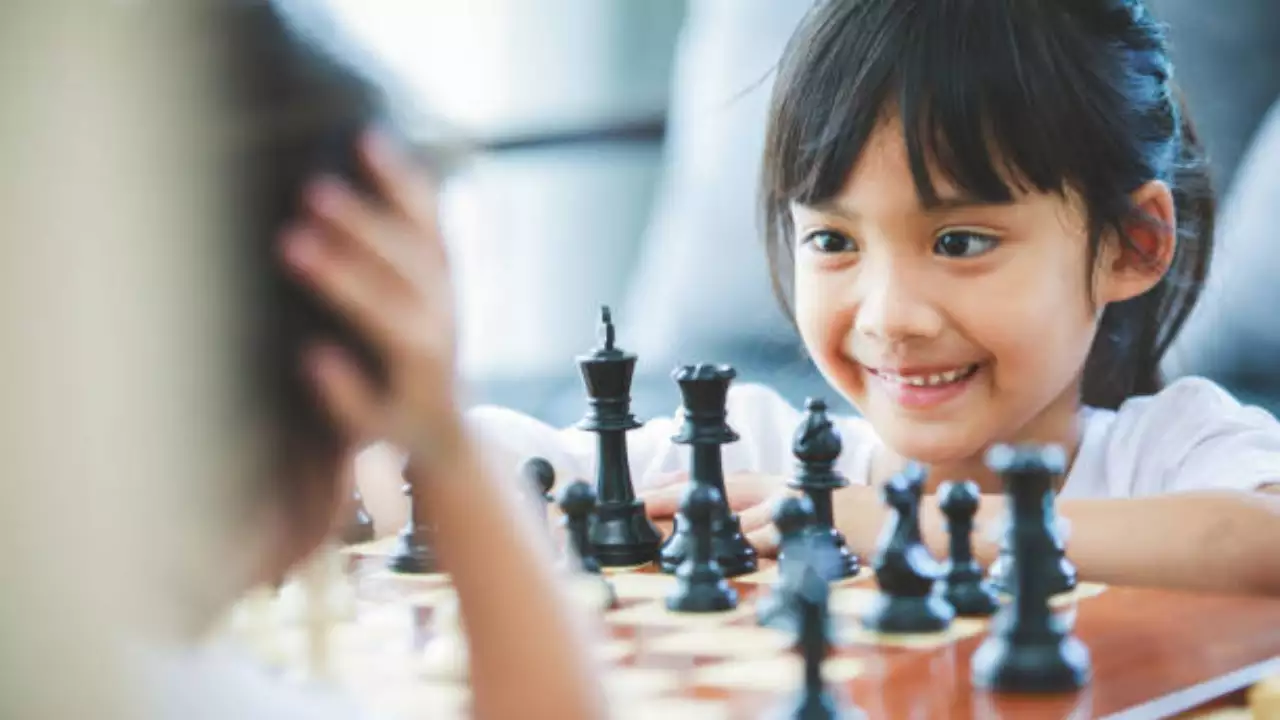Debosmita Ghosh • 25 Nov 2024
Chess For Mental Health: How Chess Can Help Improve Brain Power In Kids

Know How Chess Can Help Improve Brain Power In Kids
Photo : iStock
Chess is a board game that’s played between two opponents. The game is conducted on an 8x8 checkered board with 16 pieces per player, including pawns, knights, bishops, rooks, a queen, and a king. Each piece has unique movements, and the objective is to checkmate the opponent’s king, leaving it with no escape.
Chess is a test of strategy, foresight and decision-making and it is known for its intellectual challenge. It is also known to have several benefits such as educational benefits, fostering critical thinking and patience among players of all ages. Other than these, it is also beneficial for mental health.
Here, take a look at how chess can help improve brain power in kids.
Improves Problem-Solving Skills
Chess requires players to analyse positions, anticipate opponents’ moves and devise effective strategies. These processes help to improve kids’ ability to think critically and tackle real-life problems with a structured approach.
Boosts Concentration
Staying focused throughout a chess game is important as losing attention can result in errors. This habit of sustained focus can translate into better concentration in academics and other fields.
Improves Memory
Remembering rules, strategies and past game patterns helps to strengthen a child’s memory. It also improves their working memory which is important for learning and multitasking.
Develops Planning and Decision-Making
Chess teaches kids to plan multiple moves ahead and understand their consequences. This helps them become better at making informed decisions in life.
Enhances Logical Thinking
The game helps build logical reasoning as it requires players to understand cause and effect. This enables children to draw conclusions from given scenarios.
Patience and Discipline
Chess teaches children to think through moves rather than acting impulsively. This fosters patience and the discipline to analyze before acting.
Boosts Creativity
By exploring different strategies and moves, kids develop creative thinking skills. Chess encourages thinking outside the box to find unique solutions to challenges.
Promotes Social Skills
Chess is often played in clubs, tournaments or online communities. This helps kids build friendships, learn sportsmanship and develop communication skills.
Enhances Cognitive Skills
Playing chess engages both sides of the brain, thereby, improving skills like spatial reasoning, pattern recognition and analytical thinking.
Reduces Anxiety
The meditative nature of focusing on the board and its strategies can help kids reduce anxiety and channel their thoughts productively.
Improves Academic Performance
Skills learned in chess like concentration, problem-solving and logical thinking, often translate to better performance in subjects like math and science.
Builds Resilience and Emotional Regulation
Facing wins and losses helps children cope with success and setbacks. This teaches them emotional resilience and the ability to handle stress constructively.
Get Latest News Live on Times Now along with Breaking News and Top Headlines from Mental Health, Health and around the world.